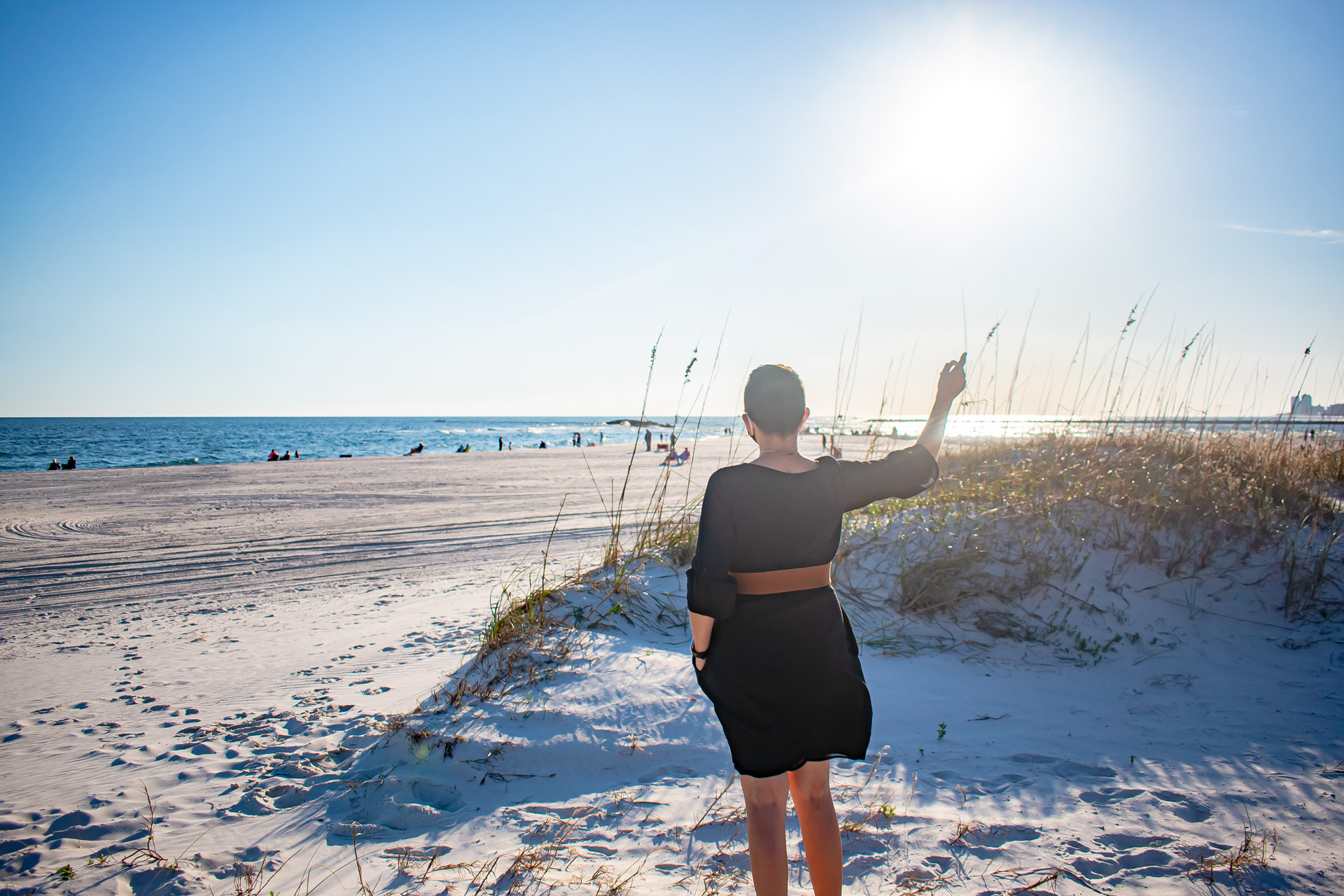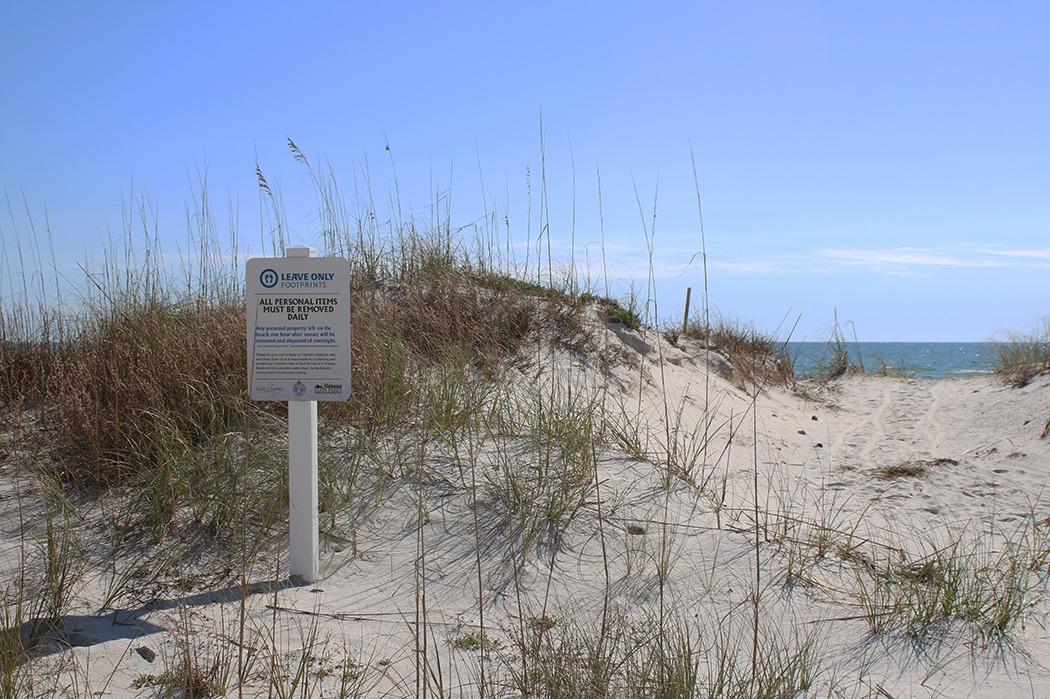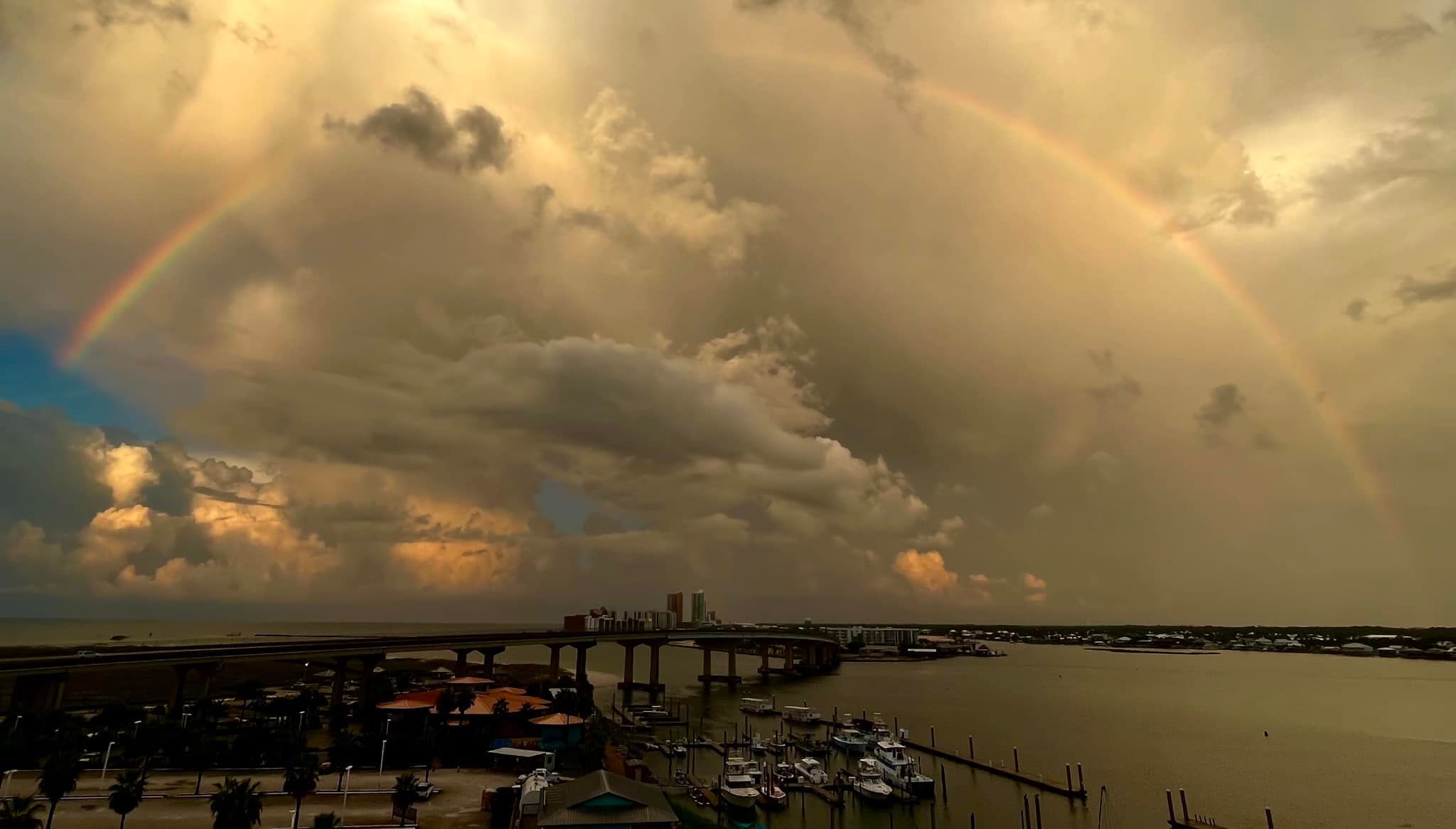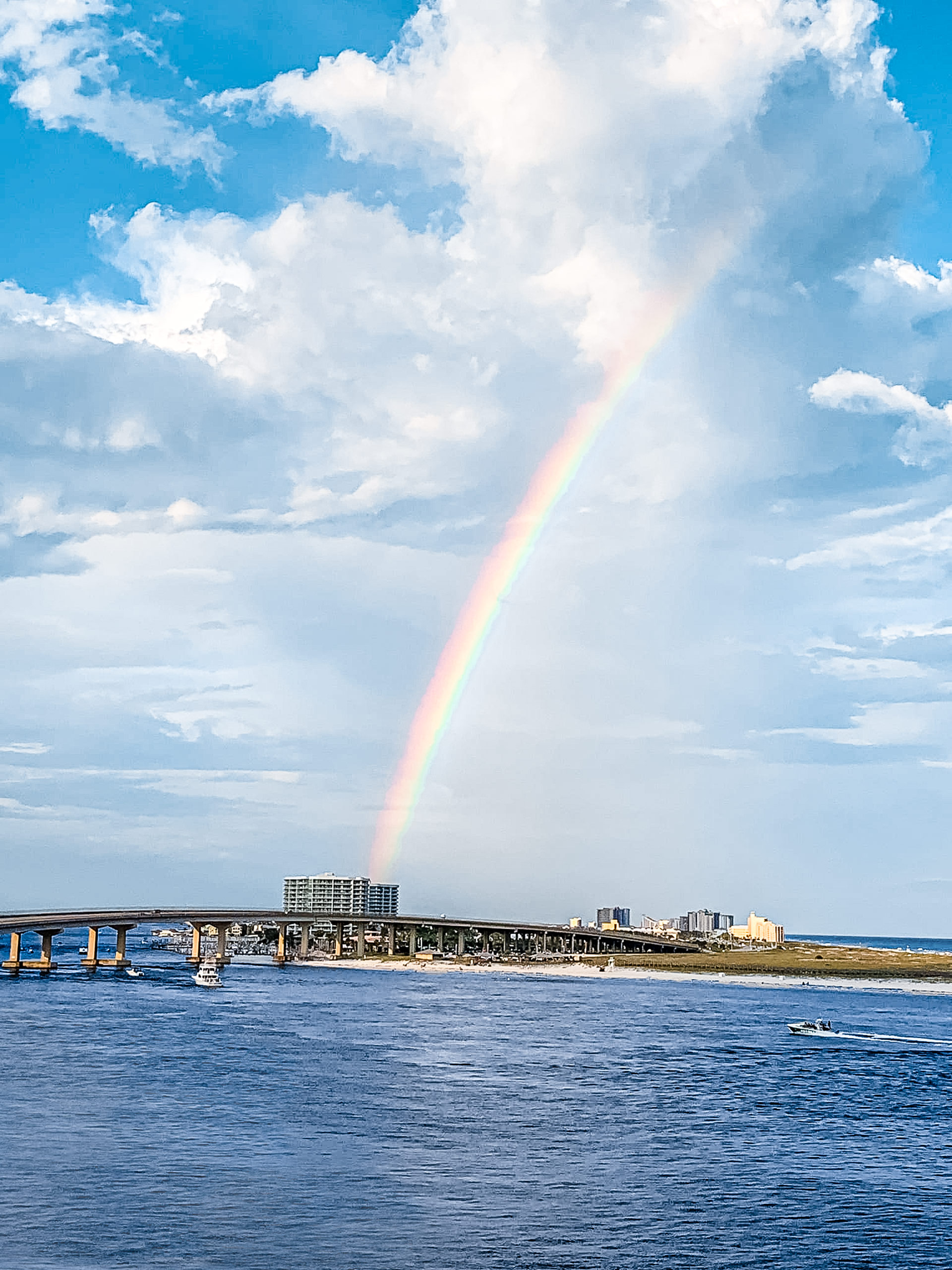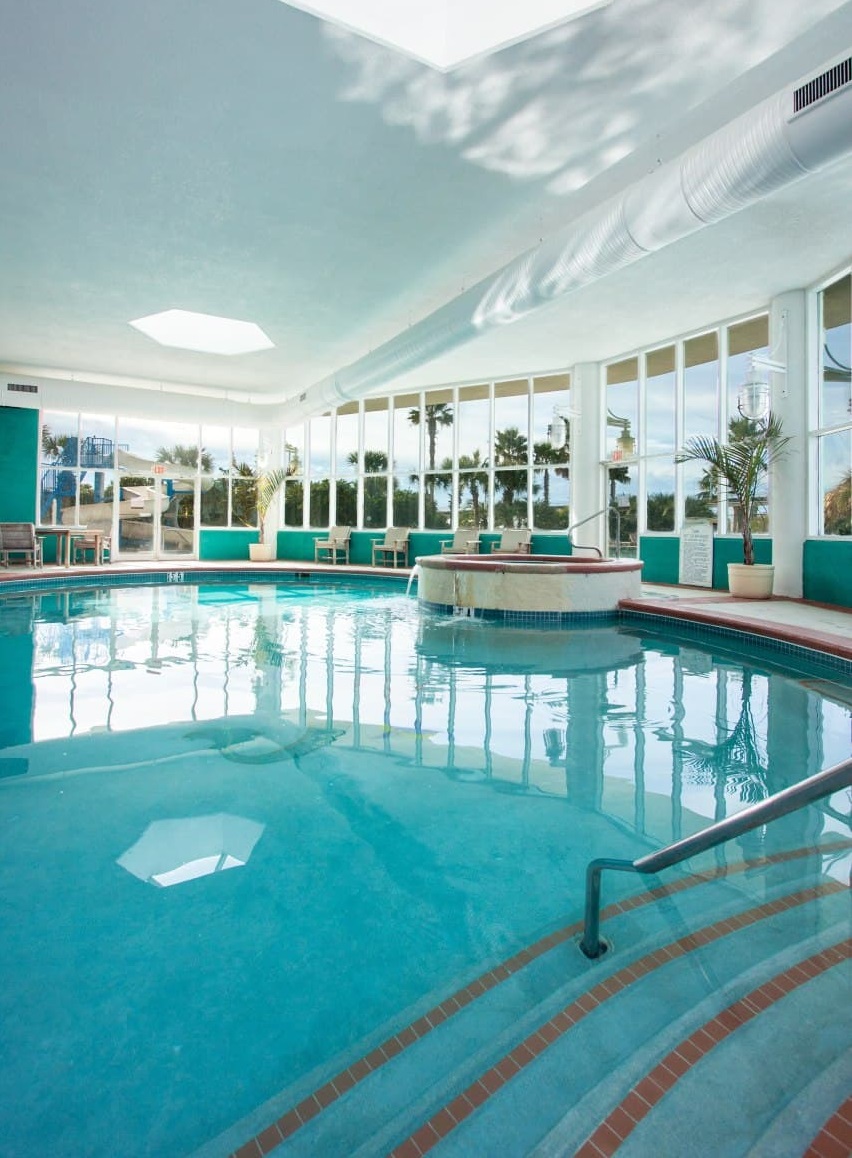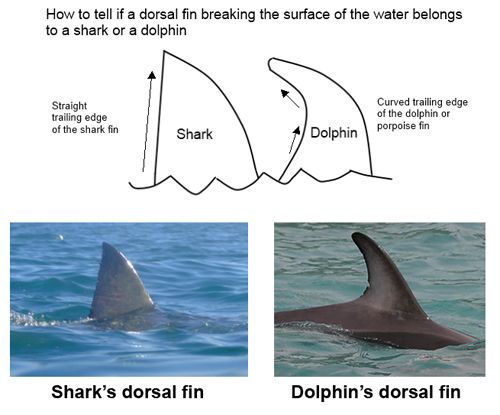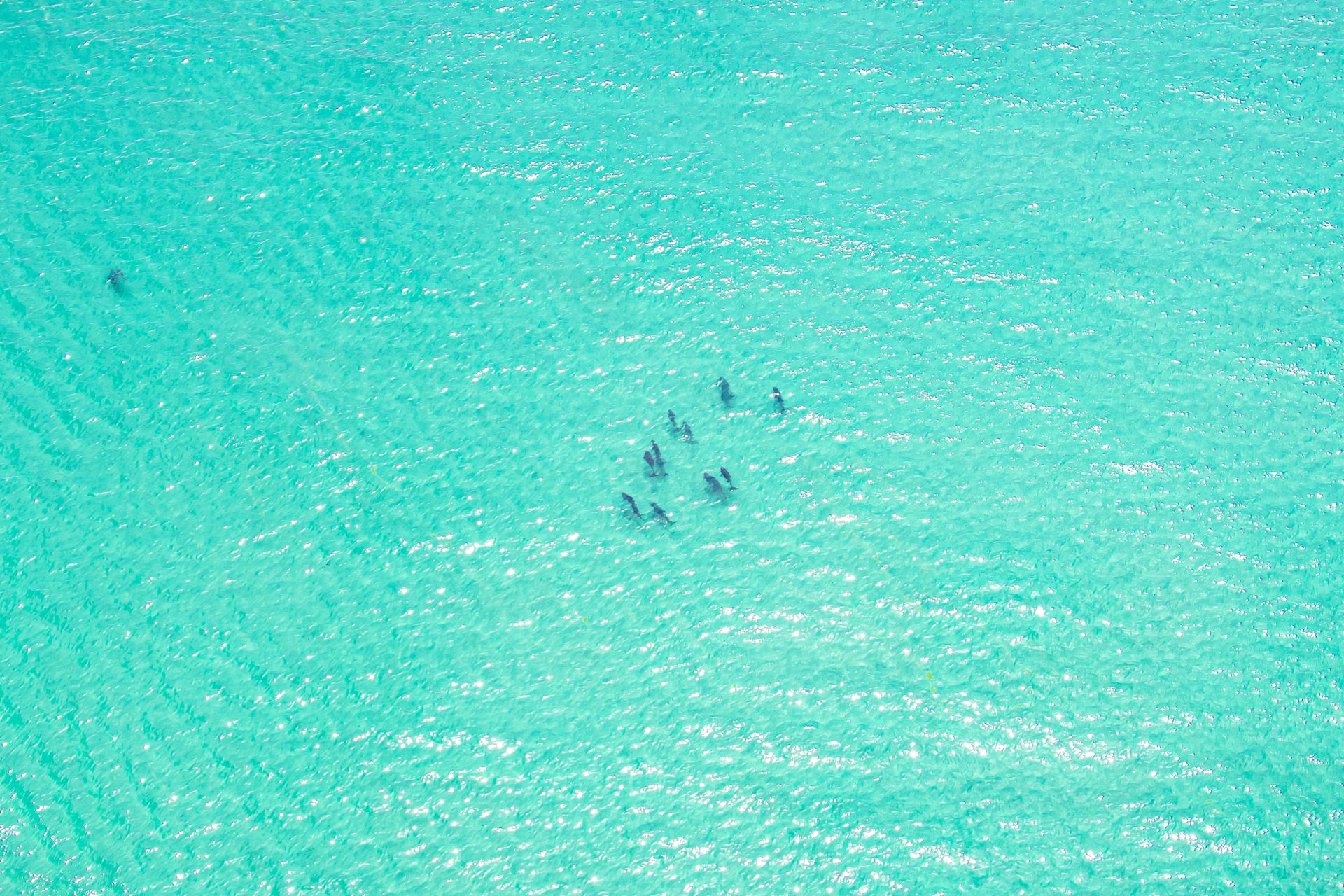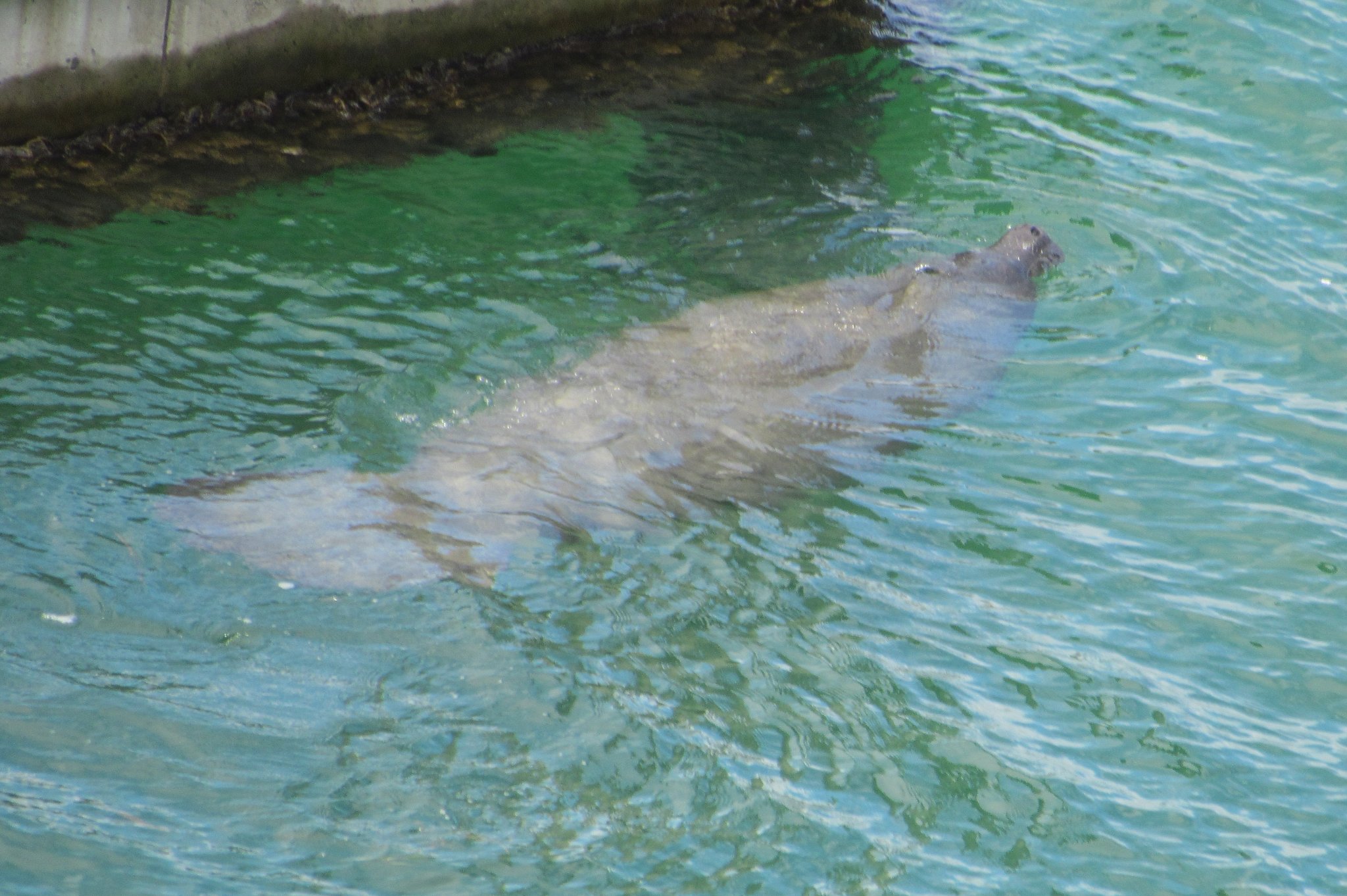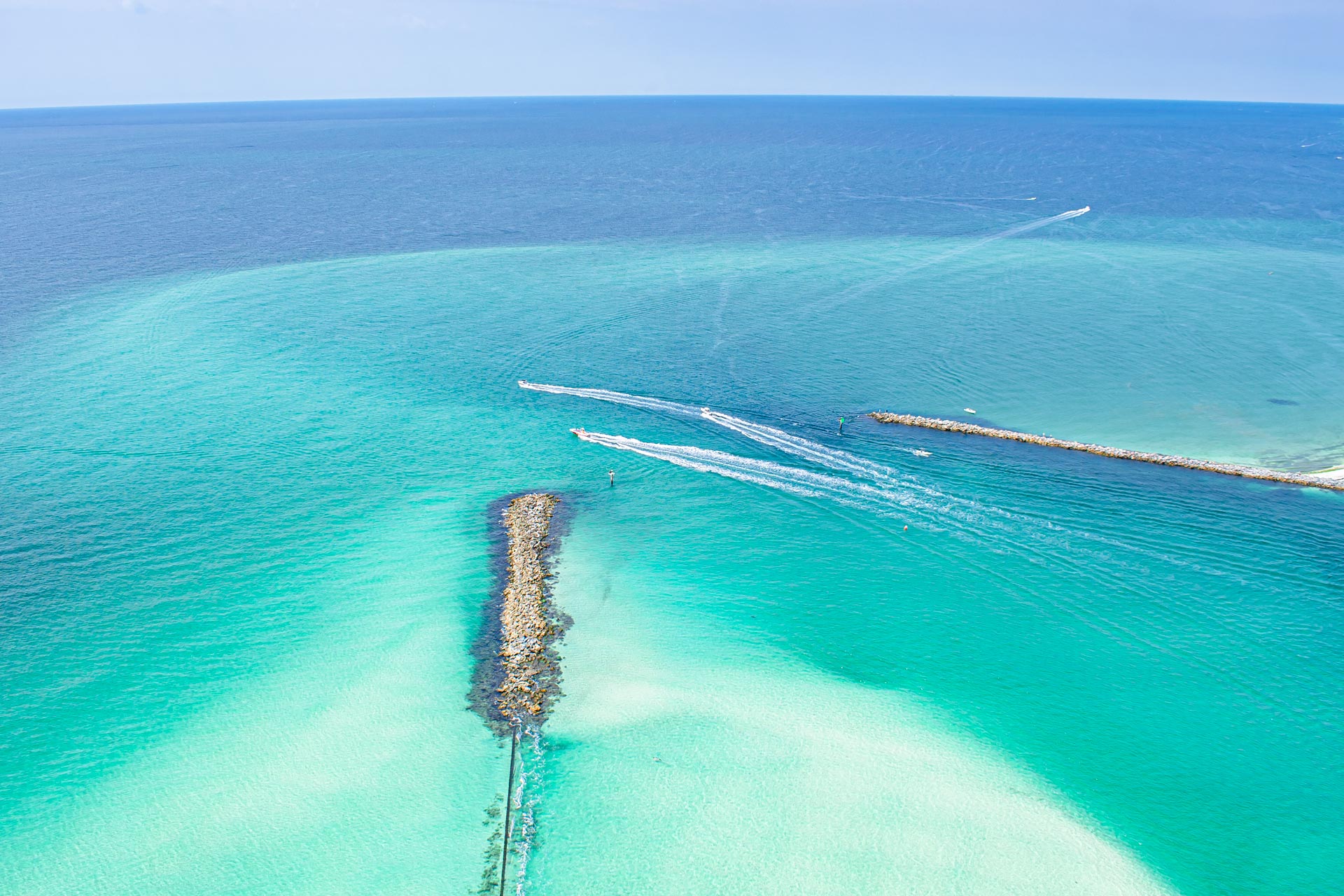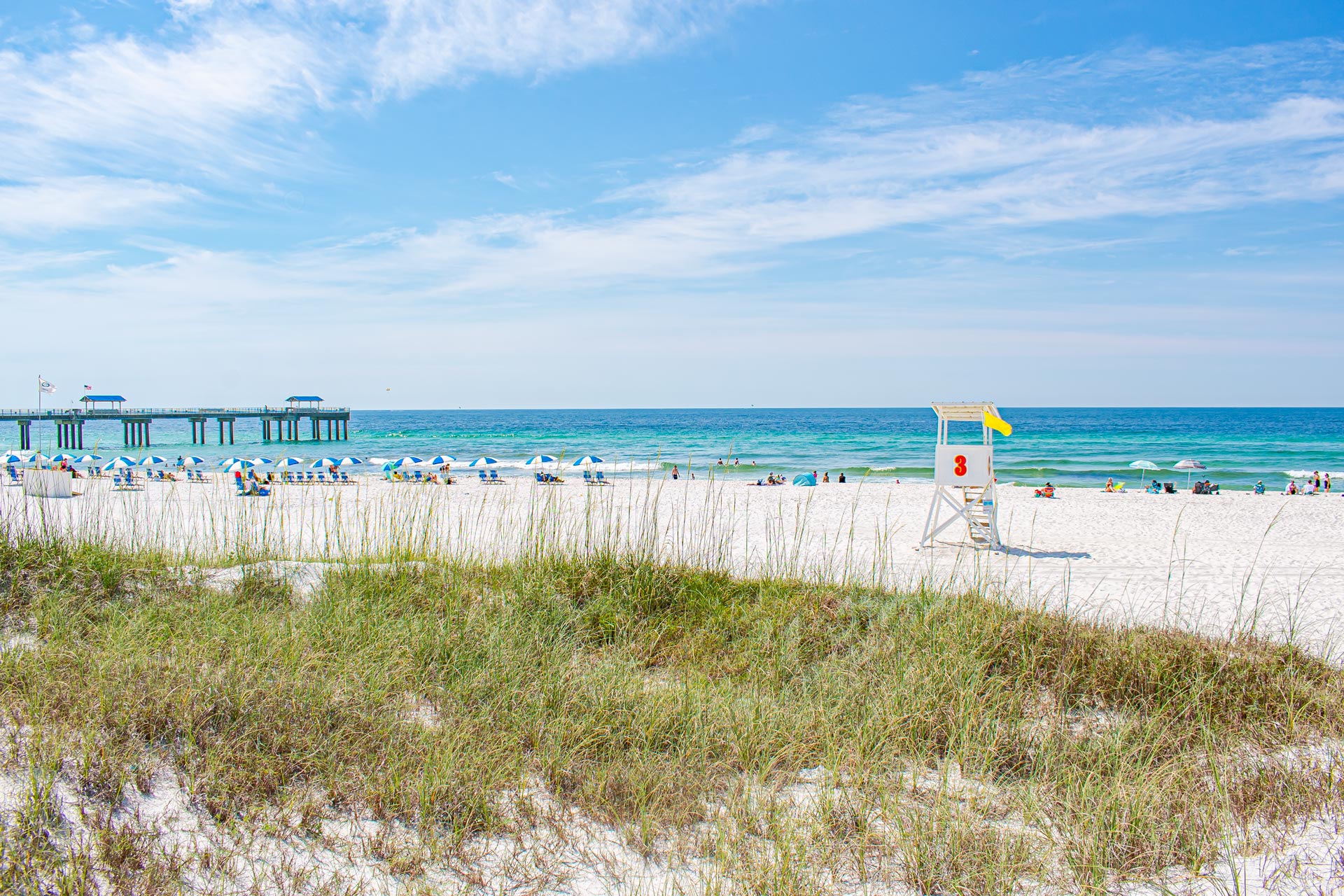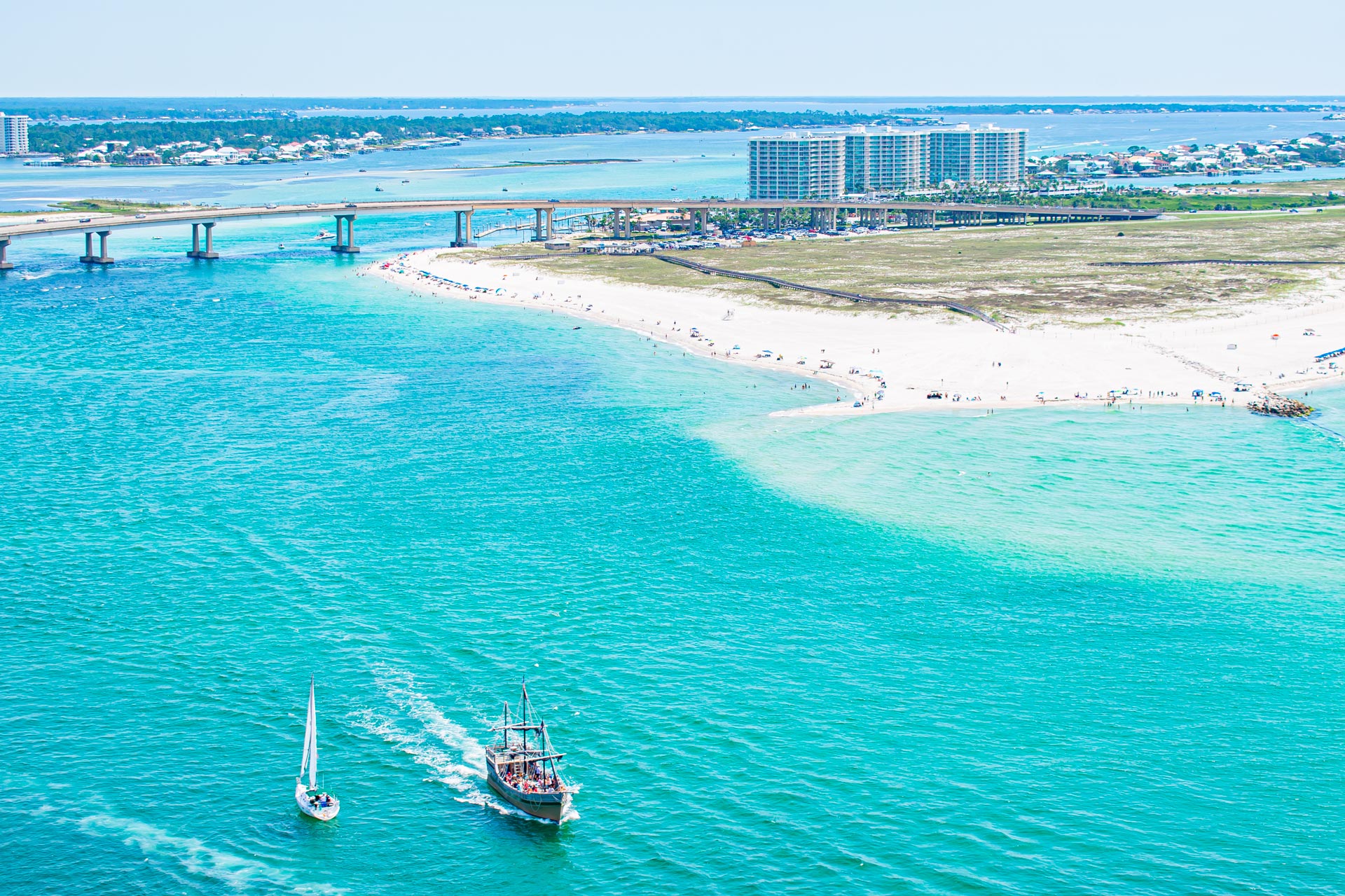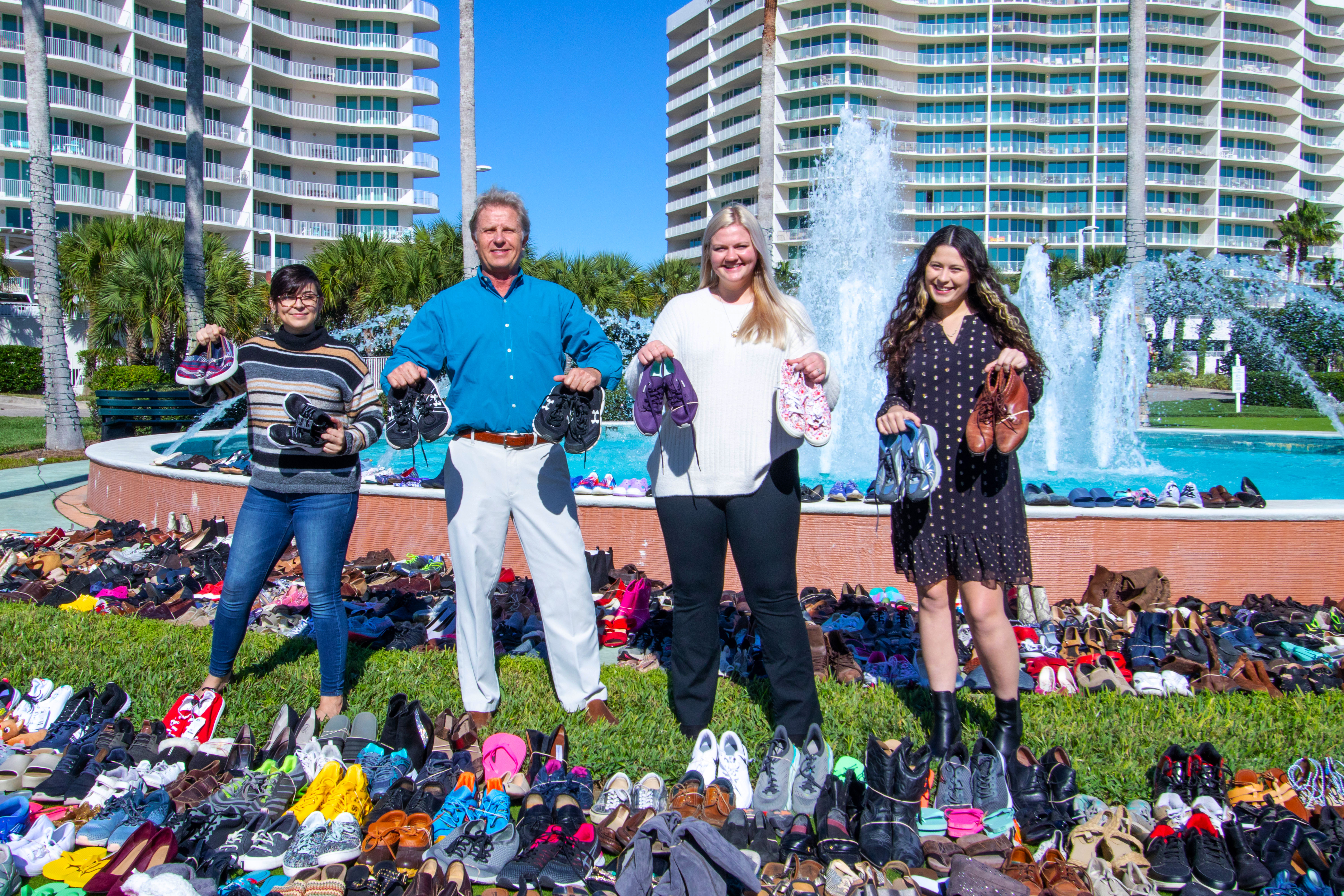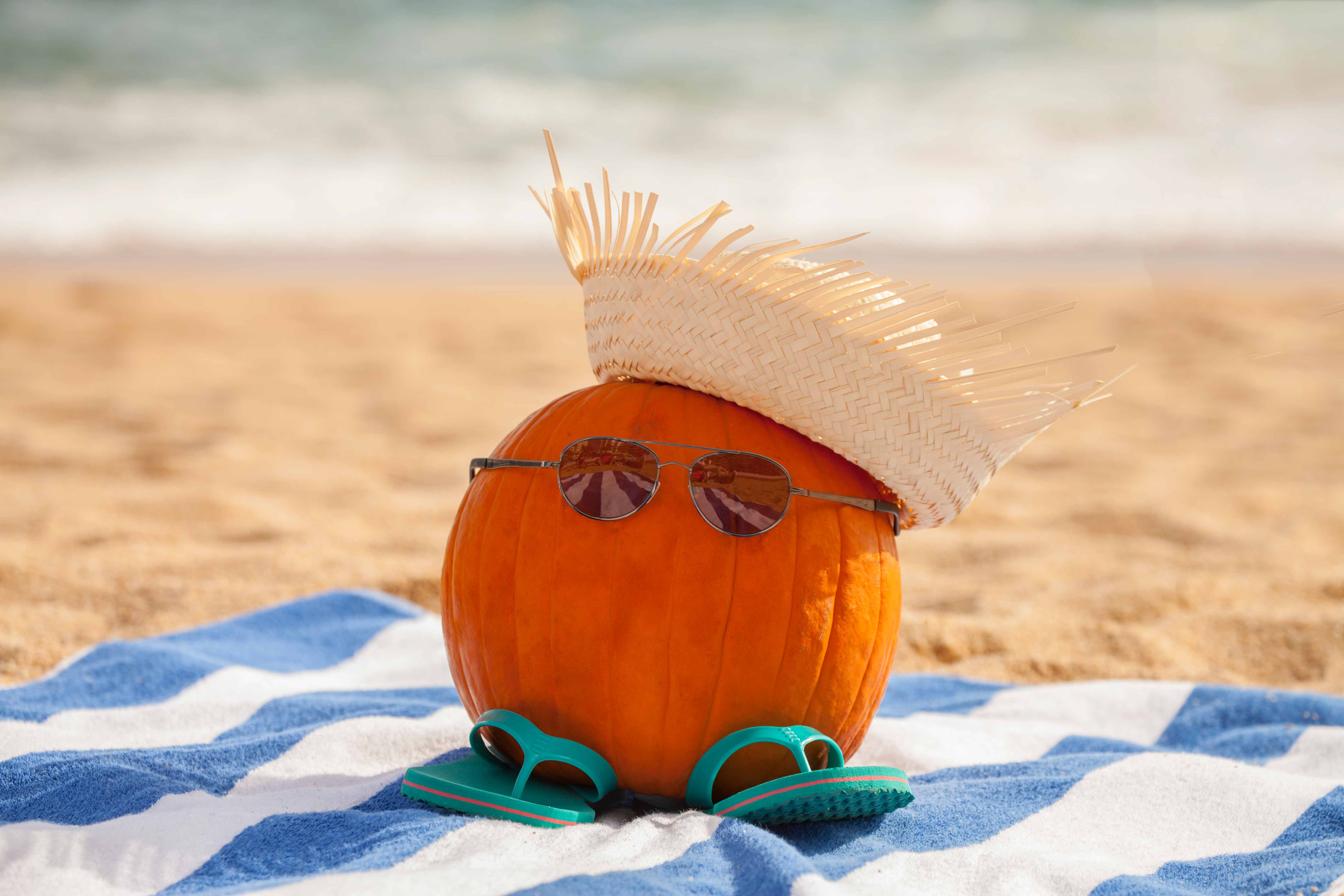Once you arrive here on the Gulf Coast we know you’re ready to hit the beach for some sunshine and saltwater. Here at Caribe Resort, safety is our top priority for guests while they are here with us. And while learning to swim in a pool is great for beginners and experts alike, the ocean has its own set of rules to follow. From a cool breeze to rip currents, and even heavy seaweed, many different factors can affect the water and how it acts each day. That means that the Gulf you wade through one day can completely change by the next. So we always recopmened a bit of caution for even the most experienced swimmers when heading out across the Dunes. So grab your swimming buddy and get ready for a quick class on beach safety. Follow these 9 beach safety tips to help keep you and your family safe this summer!
1. Follow Beach Rules & Regulations
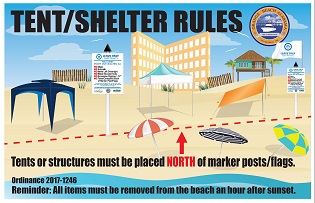
People always want to know if they can bring chairs, tents, games, etc, to the beach. And yes, you can, but do be aware that you share the beach with others so don’t crown each other too much and leave space so you don’t throw sand on your sunbathing neighbors by accident. One of the easiest ways to ensure beach safety is to follow the rules laid out by public officials. Make sure to read posted signs and follow regulations put in place by local authorities. Some of the most common is no glass or fire allowed on the beach, picking up and removing all trash, and no pets. These rules are here for your protection and can help keep you safe. You can find a full list of rules and regulations for Gulf Shores and Orange Beach at the links for Orange Beach and Gulf Shores.
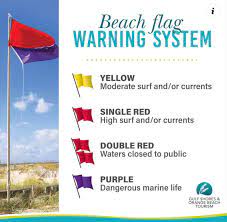
2. Know the Beach Flags and What They Mean
Since the water can and do change daily, public beaches along the Gulf Coast display warning flags indicating tide conditions. Paying attention to these flags is essential to your safety, even if you just want to go ankle-deep and look for shells. Make sure to check the color of the flag before each visit to the beach, as they can change several times a day. They range from Green (safe but be cautious) to double Red (closed for all swimming due to dangerous currents/tides) and even Purple (dangerous marine life). To make things easy, you can sign up to receive daily beach conditions and warning flag status by texting ALBEACHES to 888777. At the end of your vacation, opt out of the text alerts by texting STOP.
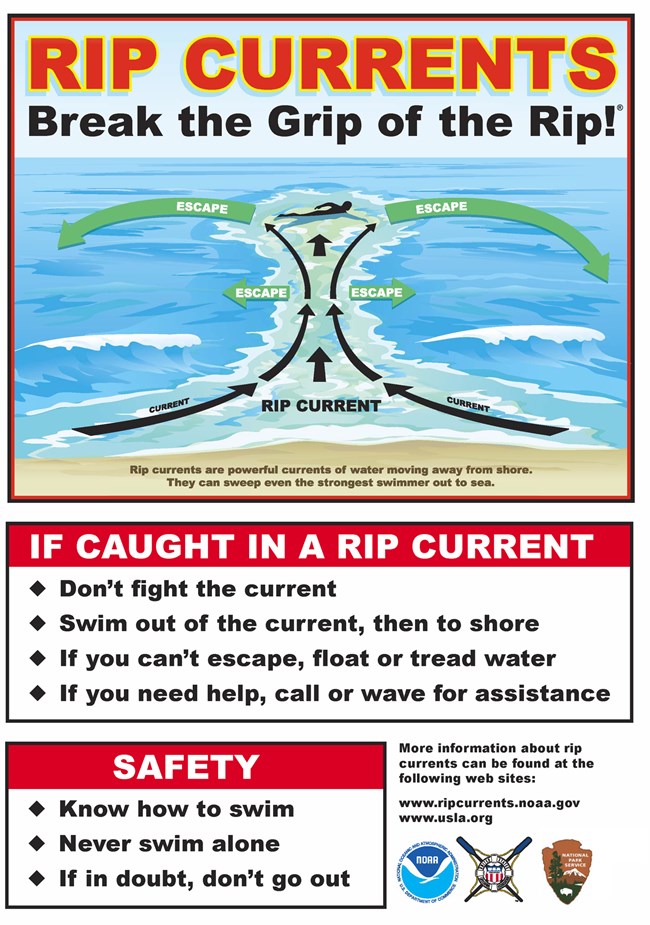
3. Be Aware of Rip Currents
The first thing you should do when you arrive at the beach is to make sure you know where the closest lifeguard stand is located in case of an emergency. They are run by our beach and fire rescue group, you can learn more by clicking here. Rip currents pose a danger to beachgoers because they are powerful and move extremely quickly. Strong currents flow directly from the shore, through the breaking waves, and out into the open water. Many People see rip current areas and think they look calm and less busy than other areas of the water. But looks can be deceiving and that’s where the danger is. People can even be swept away while standing ankle deep so if you are not a strong swimmer, do not go in during Red flags. Here is an info graphic that can help people understand how to help you stay safe if you ever get pulled into a strong current. Life jackets and floaties are always recommended but do not completely depend on them to keep you or your kids safe in the water. Make sure you always have a direct line of view to children in the water to make sure people are safe and having fun and know how to call for help if needed.
4. Weather Can Be Dangerous
Weather is an important factor when planning your next beach trip. Lightning is one of the most common weather-related injuries on the coast, as well as sand burn which is caused when the wind kicks up sand at a speed that can topple tents and blow away umbrellas. But when severe weather strikes and thunder and lightning are present, the safest option is to seek shelter away from the beach. And when in doubt, you can enjoy one of our three indoor pools to relax! Visit this link to sign up for Baldwin County Emergency Weather Alerts and stay up to date on local weather conditions.
5. Stay Hydrated & Bring Snacks
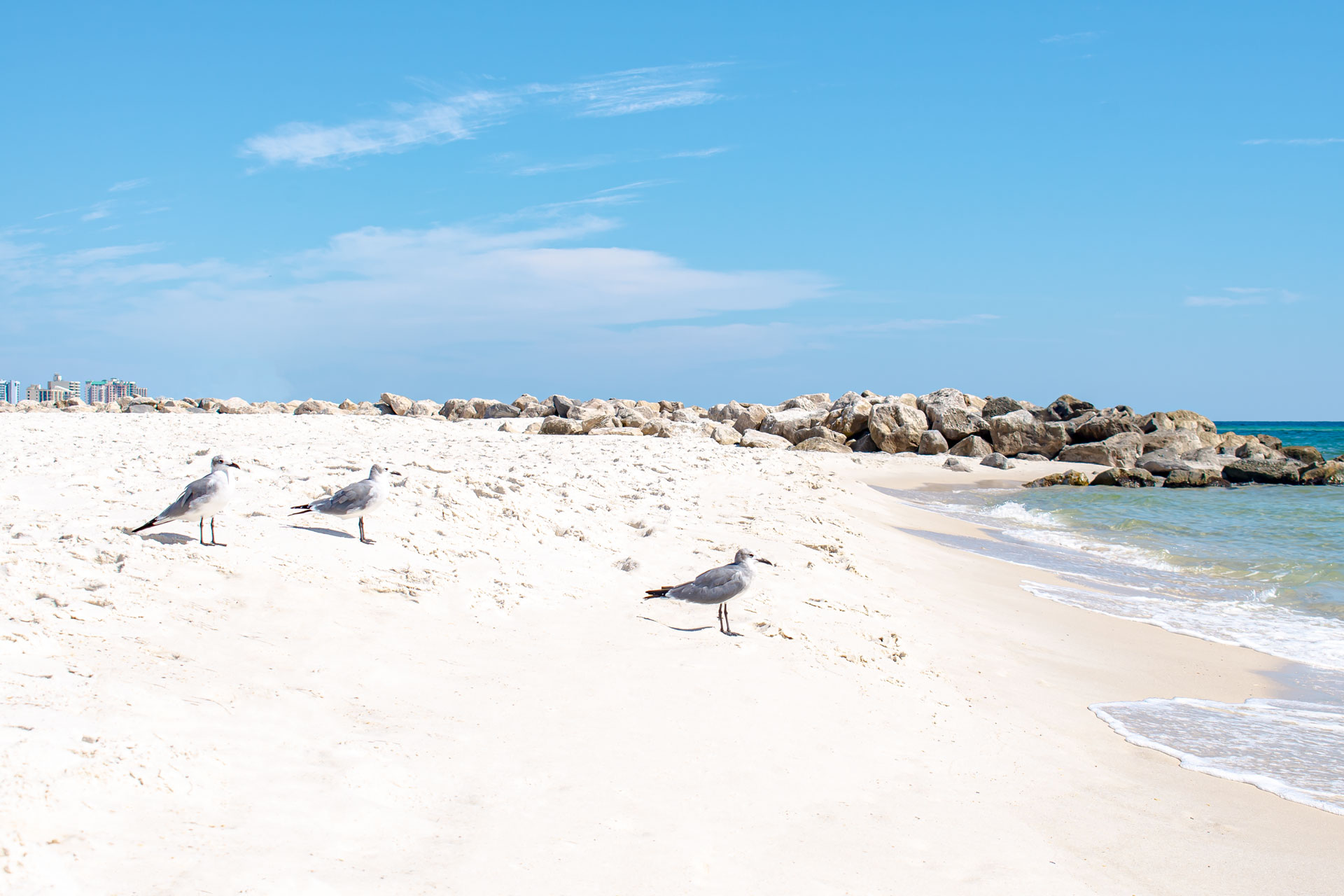
Exposure to the sun can cause you to sweat and lose vital nutrients, and if you are already wet from swimming, you will not notice when you sweat. Drinking plenty of water and drinks with electrolytes helps keep you healthy and hydrated (alcohol does not help hydrate the body). Food provides us with the energy we need to keep our minds sharp and our bodies running effectively. And while swimming can be relaxing, it can cause you to become tired quickly and make it difficult to stay afloat if you are far from shore. Make sure to fuel up beforehand and bring plenty of snacks (and a trash bag) on your next beach trip to supply your body with ample energy for fun in the sun and water. Dehydration and shortage of fuel can easily lead to disorientation and reduced energy, but as long as you have some of your favorite snakes if a fun and enjoyable experience for all!
6. Be Aware of Marine Life
The Gulf is home to several types of marine life. Most are not a cause for worry, but it is helpful to be aware. Do not be alarmed when you see marine life as it is a natural part of the ecosystem. The most common animal that people fear when entering the Gulf is sharks, but we have plenty of Dolphins as well. The best way to spot the difference is that a dolphin’s dorsal fin is curved backward toward the animal’s rear. It has a definite arc, with a sharply curved tip. A shark’s dorsal fin is broad and stands straight up from the animal’s back. The front edge of a shark fin is angled backward, while the rear edge is straight. But whether it is a dolphin or a shark, be sure to leave them alone. While it is very important to be alert and mindful of their presence, shark attacks are uncommon and are very rarely fatal. If you see a shark, do not be alarmed. Simply exit the water as quickly as you can without panicking as they are most likely following a school of fish or stingrays to get some lunch.
Other animals to be aware of are the various species of stingrays. Rays like to spend their time on the seafloor and bury themselves in the sand. To make sure you don’t step on a ray, shuffle your feet as you walk through the water. This causes vibrations along the floor and will scare away any nearby rays. Occasionally we do have a manatee sighting, the best thing to do is exit the water and enjoy taking pictures from shore. There is also a manatee hotline to call when they are spotted (online at manatee.disl.org. or call toll-free: 1-866-493-5803).
Jellyfish are prevalent along the Gulf Coast, especially now during sea turtle-catching season. They float with the current and while they do not purposely sting you, any contact with their tentacles will cause a painful reaction so avoid them when you spot them. Most jellyfish stings can be treated at home and are fairly easy to manage. First, remove any remaining tentacles with a flat object such as a credit card. Make sure not to touch them with your hands as they can continue to sting. Next, rinse the sting with salt water, then with vinegar to deactivate the stingers. Despite popular belief, urinating on jellyfish stings does not alleviate discomfort and may cause the stingers to release more venom.
7. Sunburn Isn’t Your Only Concern
Sunburns aren’t the only dangers you can face when you expose yourself to the sun. Heat exhaustion, heat stroke, and sun poisoning can threaten your health and make you very sick. Know how to identify the signs and symptoms: confusion, dizziness, headache, muscle cramps, fatigue, nausea, pale skin, weakness, or swelling of the hands and face. To assure that you and your family are protected, apply sunscreen every hour and take an umbrella or canopy tent to give you a safe place out of the sun. Don’t worry if you arrive at your condo and immediately want to head out to the pools or Gulf. We have an onsite shop for all your beach needs that offers all kinds of sunblock (spray and bottle) as well as protective swim and beachwear, floaties, phone holders, sunglasses, beach towels, and hats! If you or someone, you know is experiencing symptoms of heat exhaustion, heat stroke, or sun poisoning, seek medical attention.
8. Know How to Swim
Even in the calmest of conditions with a Green flag waving, entering open water can pose potential risks to anyone that is not an experienced swimmer. Crashing waves are powerful and may pull an inexperienced swimmer underwater. Swimming lessons can be started as early as a year old and decrease the risk of drowning by as much as 88 percent. If you or someone you are with does not know how to swim, ensure their safety by having them wear a well-fitted life jacket. Many beachgoers usually enjoy staying around waist height and playing games like frisbee or catch. But always make sure you keep an eye on your chosen spot on land since the current will naturally push you further away without you noticing it is happening.
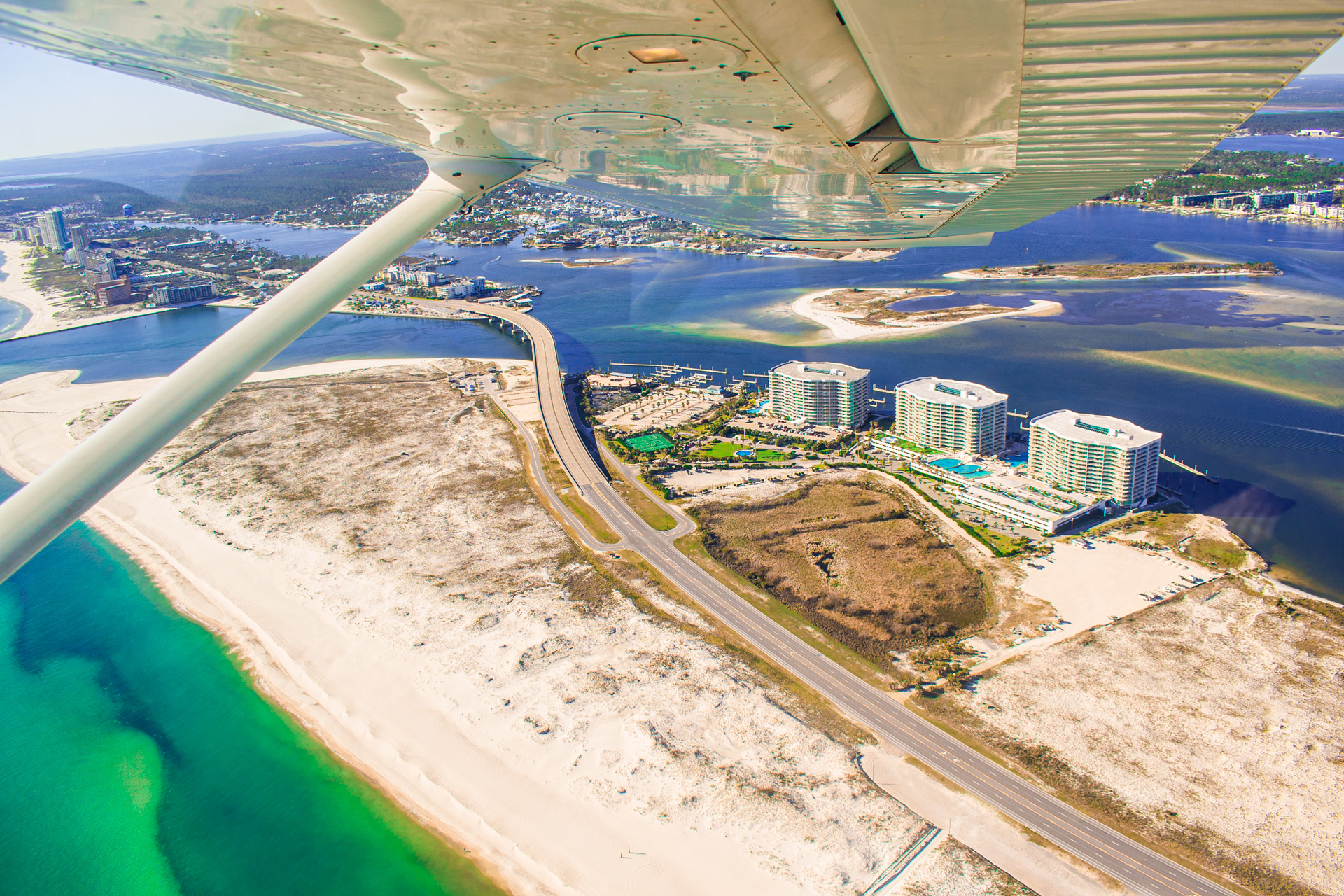
9. Know the Signs of Someone in Distress
One of the biggest issues we have on the Gulf is when a person tries to save another and ends up needing to be rescued as well. The BEST thing you can do is get them a float of some sort and call emergency services immediately. Drowning is the leading cause of unintentional deaths worldwide and can happen in as little as two inches of water. While we typically think of someone waving their hands and yelling while drowning, the truth is that drowning is normally quiet. Look for signs such as a person whose head is low in the water, leaning back with their mouth open, closed eyes or inability to focus, or trying to swim and not making any progress. Learning the signs of someone in distress can help save a life. It is always best to make sure your group knows and agrees on what motions or hand gestures to use when swimming so confusion doesn’t take over when someone is in need. We have had many accidents when an adult tries to save someone and ends up not helping them but needing help as well.
Here at the Caribe Resort, safety is our top priority for guests and locals alike. Knowing these 9 beach safety tips can help keep you and your family safe and enjoying the beaches while making sure everyone arrives home safe and sound. So next time you come for a beach trip, make sure it’s unforgettable for all the right reasons and love the beaches as much as we do!!
To see the beach from the sky, check out Hang Ten Helicopters or Aeropro!
To see more of the ocean without getting in, check out the marina and fishing options here.



